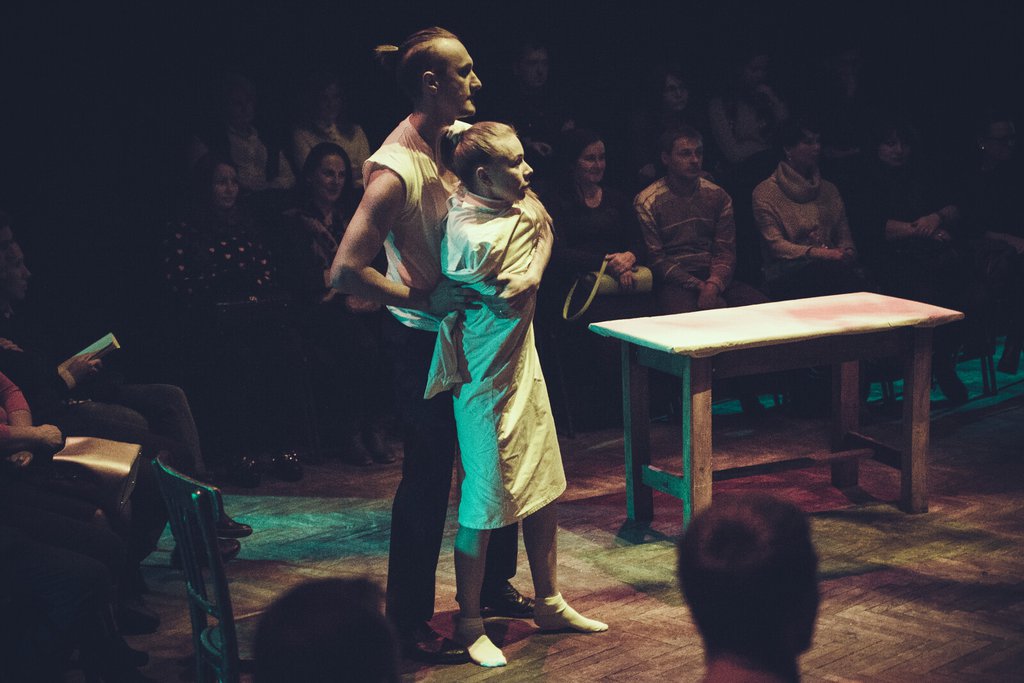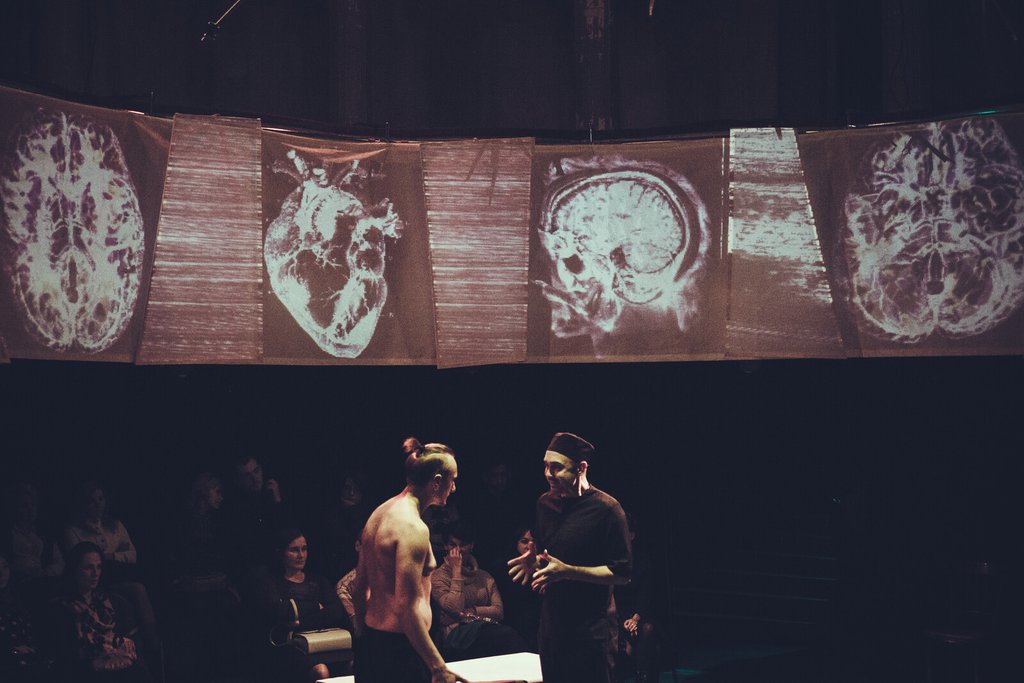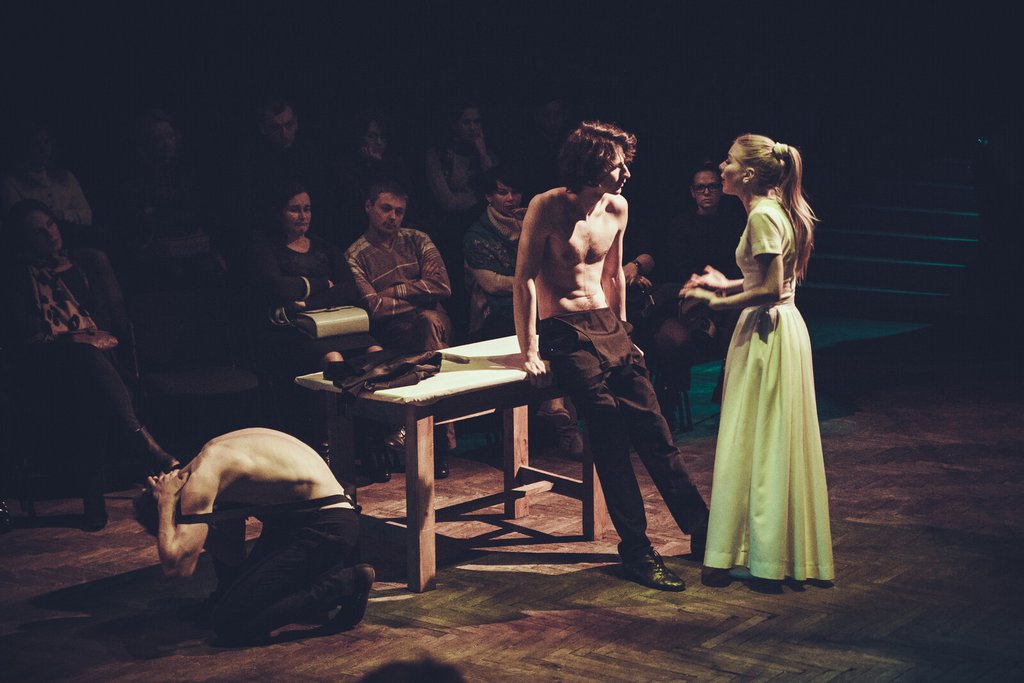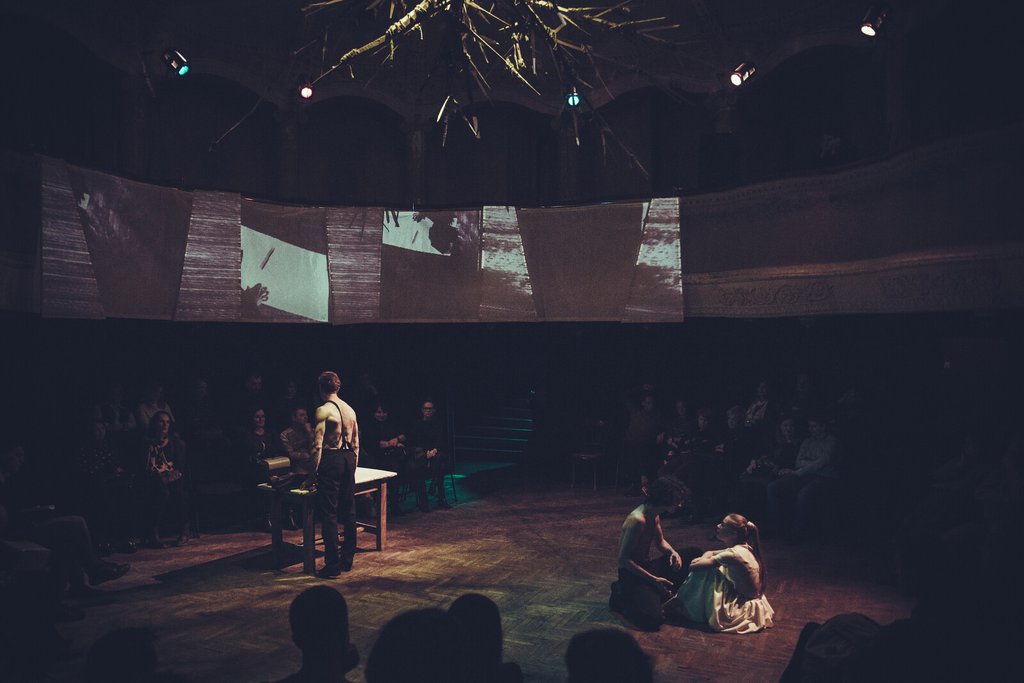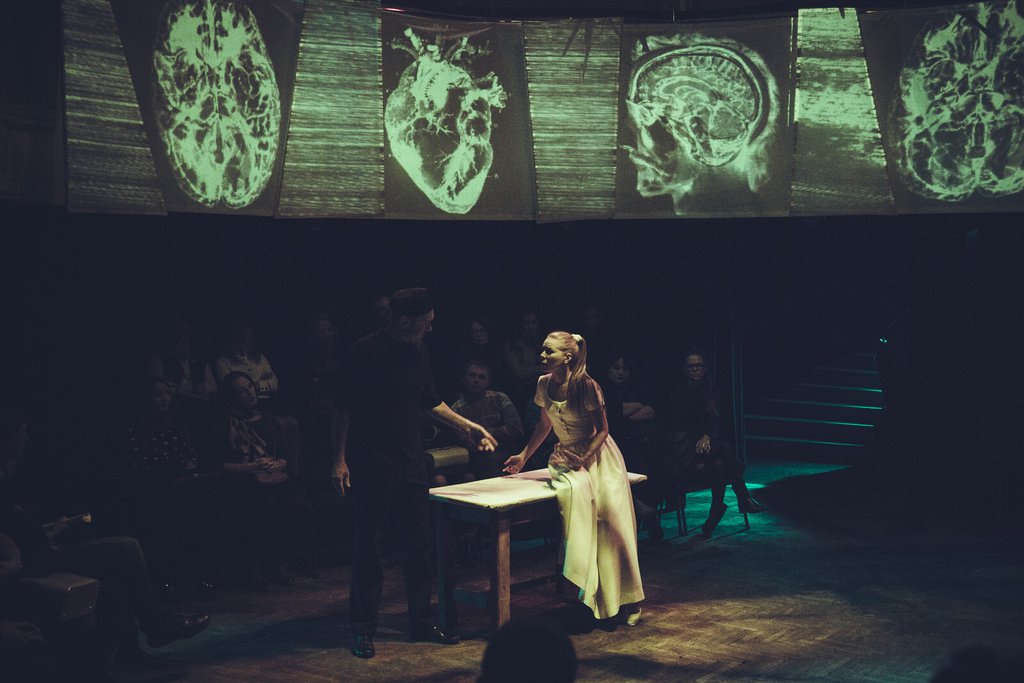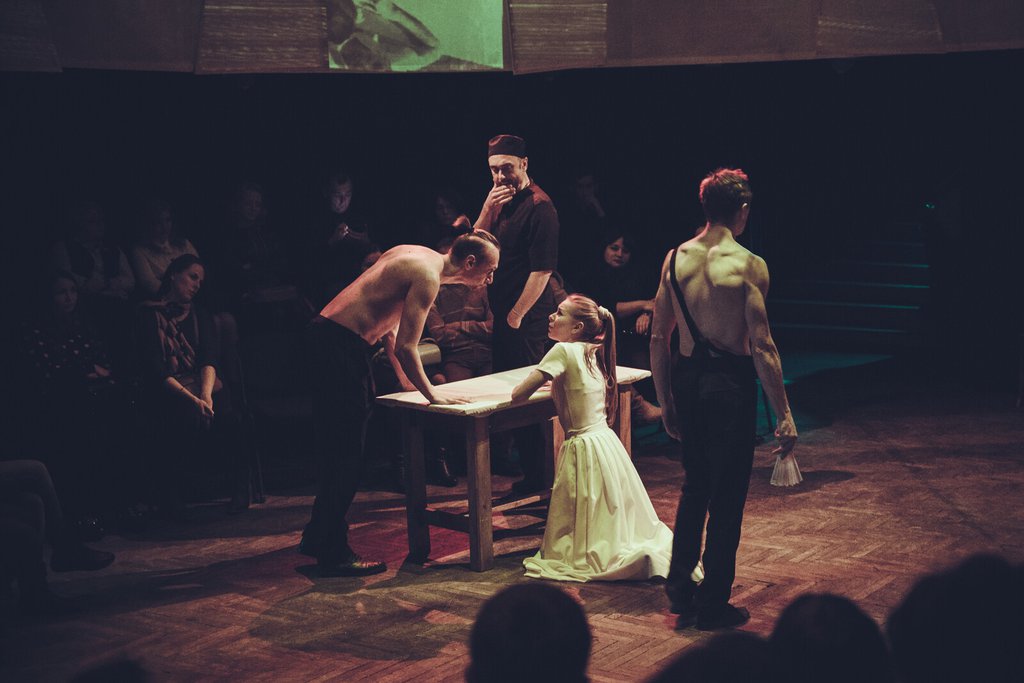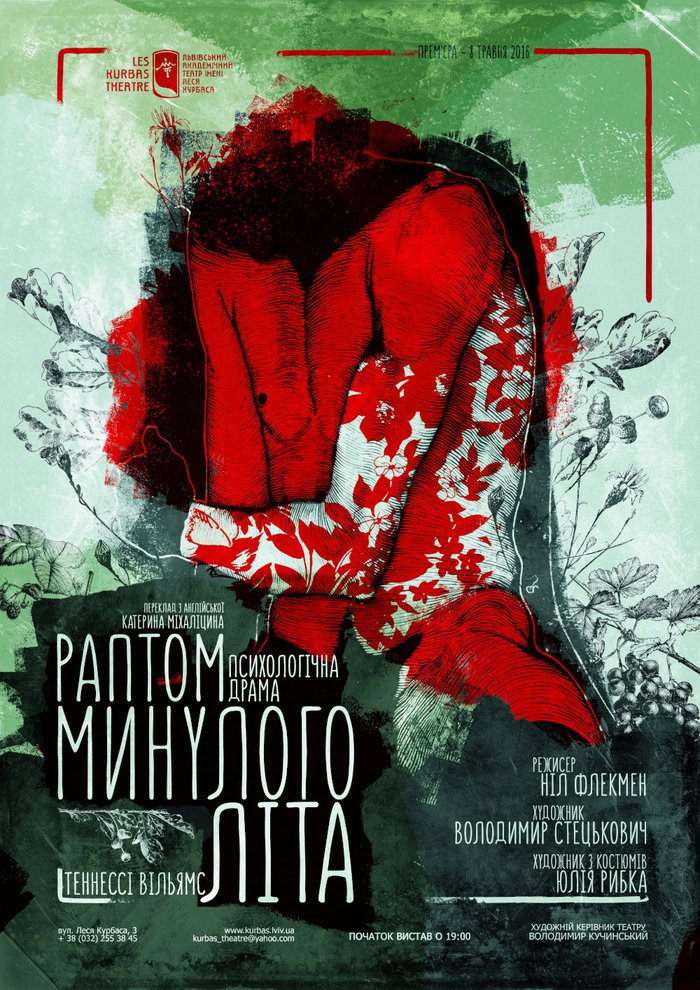
Suddenly last summer
- Genre
- psychological drama
- Duration
- 1:40 without intermission
- Age restrictions
- 16+
- Content warning
- The performance contains explicit content and language
- Date of premiere
- May 8, 2016
Suddenly Last Summer is written as an unrestrained play about restrainment. Against its themes of repression and confinement, everything about its theatrical expression is deliberately excessive from its “massive tree-flowers that suggest organs of a body” to its overbearing characters’ unquenchable thirsts, to its disturbing themes and realizations. Williams presents us with a highly calculated and vibrational mindset bursting with rhythms, heat, scents, sounds—all designed, by the laws of filling up a theatrical space, to overwhelm us. It is a work where all the elements play with and against one another to allure different points of our attention into yielding his deeply poetic work into a visceral whole.
Neil Fleckman’s unique production at the Les Kurbas Theatre explores Suddenly Last Summer through a very different lens. This tale of an extended family’s meeting in Violent Venable’s garden in quest to deal both with the aftermath of the brutal death of her son Sebastian, and his institutionalized cousin Catherine, who witnessed his death, is inverted from the play’s heatedly colorful and magnified expression to a dark flipside of events as experienced by Catherine. What is impressive about this rendering is that Williams’ sensual vibrations are not lost; but rather they exist on a different pitch and level. We may not see the “violent colors” of flowers steaming in Williams’ New Orleans garden heat, or hear his beastly sibilant hissings, but we do experience how this overgrown cacophony echoes within Catherine. It’s as if she can see the “savage nature of this garden,” but her traumatized perception renders it into a muted monotone world of an askew and jolting space, where everything plays out in terms of its primal underlying truth. Nothing exists here in terms of conventional truth. Nor is it performed as such by the actors or in its design: There is no garden; opulence is poverty; her family are cunning strangers; the characters that try to manipulate her story are essences rather than men and women. Conversely her wild and damaged story, which in the light traditional perspective is horrifying and abysmal, offers a kind of clarity as it taps into an unrestrained and unrepressed course of actual truth. Presented as such, this production’s worldview brings out a central theme in quite an oversized way …that deep at anyone’s core, there is something inherent which aches with the hunger of being unrealized. And that hunger needs to be fed.
Julie Anne Franko
Translation — Katheryna Mikhalitsyna
Director — Neil Fleckman
Scenographer — Volodymyr Stetskovych
Costume Design — Yuliya Rybka
Cast:
Catherine Holly—Oksana Kozakevych
Violet Venable—Vasyl Kolisnyk
Dr. Cukrowicz—Andrii Vodychev
Sister Felicity—Oleh Oneschack
Mrs. Holly—Yaroslav Fedorchuk
George Holly—Marko Svizhinskyi

